The Yamamori Estate
Founded in 1632
History
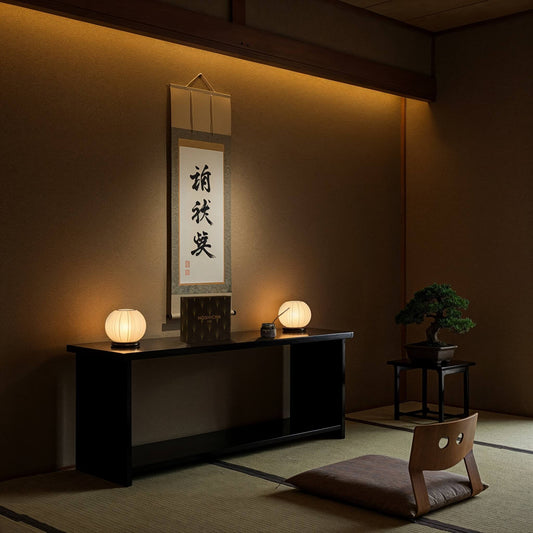
Nestled along the misty banks of the Uji River, lies the Yamamori Matcha Estate. For 16 generations, the Yamamori family has cultivated what many consider the world’s most exquisite matcha.
Founded in 1632 by tea master Hiroshi Yamamori during the Edo period, the estate’s reputation grew when Hiroshi’s tencha captivated the Tokugawa shogunate. By the Meiji Restoration, the Yamamori family had become the sole supplier to the Imperial Household Agency, a honor upheld through the reigns of Emperor Meiji, Taishō, and Shōwa.
Today, our matcha graces the ceremonies of Emperor Naruhito and the tea rituals of the Katsura Imperial Villa.
Soil and climate
The Yamamori Estate occupies a half-acre plot in central Uji, where the confluence of the Uji and Kizu Rivers creates a microclimate of perpetual humidity and dappled sunlight.
The soil, a dense amalgam of humus-rich organic matter and red clay sediments from Lake Biwa, boasts a pH of 5.2–5.6—ideal for nurturing the Yabukita and Samidori tea cultivars prized for matcha.
Winter frosts stress the plants, concentrating amino acids like L-theanine, while summer fog diffuses sunlight, slowing photosynthesis and amplifying chlorophyll production.
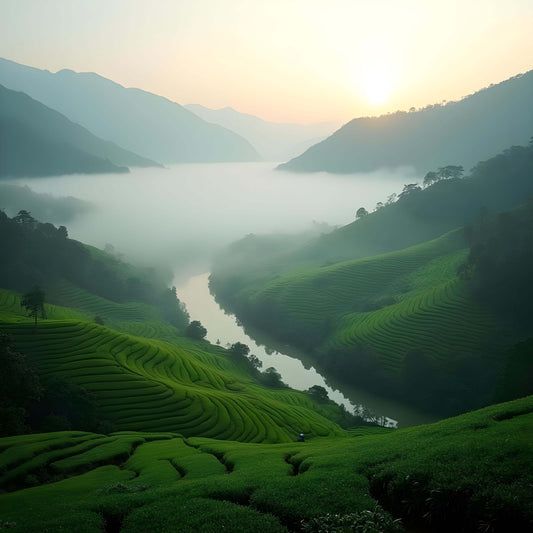
Methodology
Our matcha is aged in double layered packaging: vacuum-sealed aluminium foil plus airtight ceramic jars.
These jars are placed in a dark room (to prevent light exposure degrading chlorophyll) for 3 years, to create a gently sweet, balanced, and velvety matcha.
The temperature is kept at 41°F (5°C) to significantly slows oxidation rates. Humidity levels must also be at 30% to prevent caking and chlorophyll degradation.
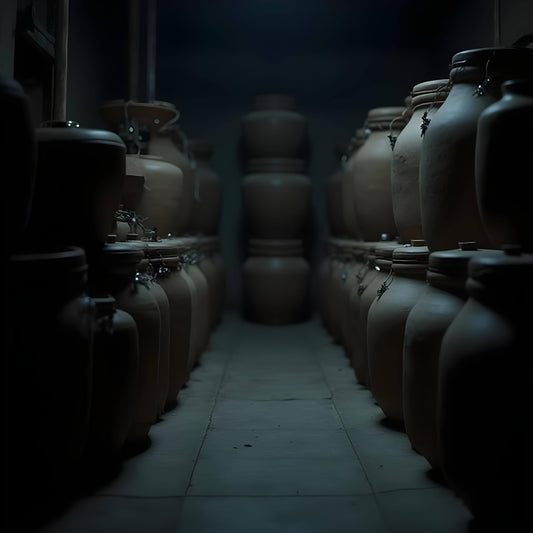
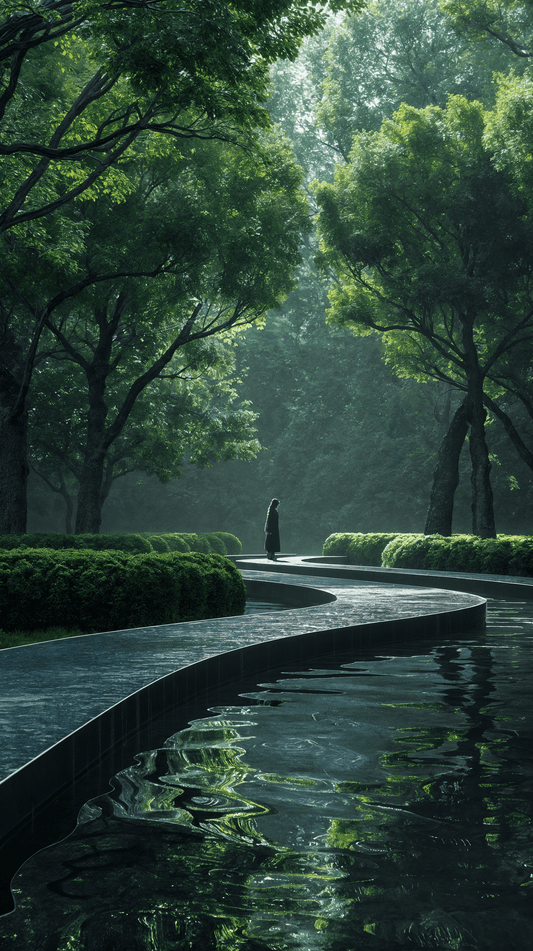
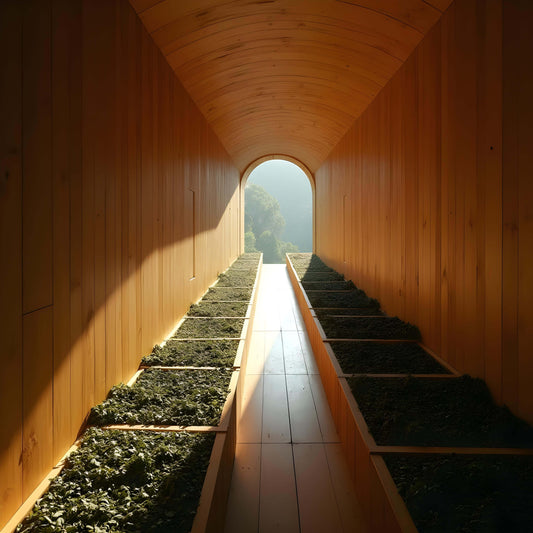
Post-Aging Rehydration
We gradually warm the to 59°F (15°C) over 48 hours before opening to prevent condensation. Then, we sieve it through a 200-mesh to restore powder fluidity.

